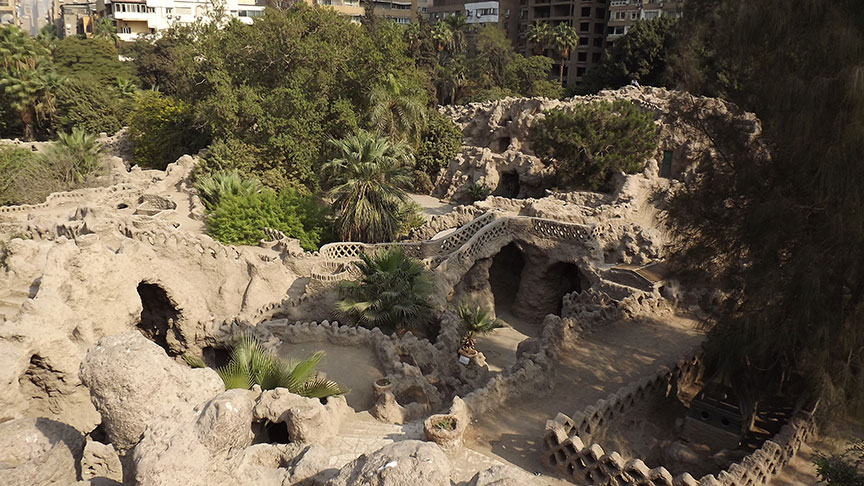Transcript: Klaus Lüber
“A better understanding of heritage management”
How can academic exchange influence a country’s remembrance culture? We recorded a dialogue between Dr Britta Rudolff, head of the international Master programme on heritage conservation and site management, and Mohamed Amer from Egypt, one of her former students.
Britta Rudolff: Mohamed, it’s now been eight years since we last spoke. Nevertheless, I’ve always followed what you’ve done from a distance with great interest. For example, you founded HeritageForAll in Egypt, an initiative that aims to raise awareness of young professionals abroad working in the field of heritage studies. I find that fascinating.
Mohamed Amer: Yes, thanks. At the moment, though, I’m concentrating on my doctoral thesis and hardly have any time to look after the initiative. I hope to transform it into an association or foundation in the future. However, I’m also concerned with gaining a better understanding of heritage management and raising its professionalisation internationally in my academic and professional work.
Britta Rudolff: I actually find that intercultural exchange is playing an increasingly important role here. That has really changed substantially in the last 40 years. Here, for example, I refer to the idea that an object of remembrance is intrinsically worthless if you do not consider the value and benefit it has for people.
Mohamed Amer: I agree. Value-oriented approaches have become much more important today. From a future heritage industry perspective, we started to go out from the culture heritage cycle to the cultural identity cycle. This contributes to mitigating the negative impacts of globalisation and modernisation on cultural knowledge and heritage communities as well as its smooth transmission to future generations.
Britta Rudolff: There is one thing I find particularly fascinating about Egypt in comparison to Germany: precisely because there are these very ancient historic sites, the witnesses of Islamic culture, which in our terms are also very old here and date back roughly to the 7th century. Yet, they are not necessarily perceived as old but rather as part of Egyptian contemporary identity, of everyday life. I very well remember my time as a lecturer at our partner university in Egypt, Helwan University in Cairo. We had the idea for a so-called Flying Faculty, which was to carry out case studies of cultural sites on the spot with students. The proposals I was immediately suggested by our Egyptian colleagues were the ancient Egyptian cultural sites in Giza. But that was too far away from the campus for me. When I asked what we could look at in the immediate surroundings, I was met with blank faces. Then I discovered Aquarium Grotto Garden, a landscape garden dating from the 19th century. For the students, it was very unusual to treat this as a historical site.
Mohamed Amer: I benefited a lot from my time at BTU Cottbus-Senftenberg. It simply makes a difference whether you only complete modules that allow you to gain additional professional experience. In addition, I benefited a lot from the modules in soft and academic skills at DAAD Kairo Akademie. And that’s why I find it so important to keep nurturing fresh academic talent. By the way, I could also imagine even more support from Germany here.
Britta Rudolff: I’m happy to note that. What I also consider a very positive development, however, is the fact that active alumni networks have formed in many countries – in Egypt, too – that are advancing precisely the kind of professionalisation that is desirable for our subject area. I’m in total agreement with you on that, Mohamed.
Dr. Britta Rudolff is a professor in heritage management at Brandenburg University of Technology Cottbus-Senftenberg (BTU) and teaches as part of international Master programmes in world heritage studies and heritage conservation and site management.
Mohamed Amer is completing a doctorate in heritage marketing and sustainable cultural tourism at Roma Tre University. He is a graduate of the DAAD-funded study programme in heritage conservation and site management offered at the BTU in cooperation with Helwan University in Cairo.



